Cholera Outbreak: 2,791 Nigerians Die In 9 Months As Nigeria Battles Another Pandemic
With the third wave of the COVID-19 pandemic, Nigeria is struggling to contain the recent cholera outbreak which has affected 28 states including the Federal Capital Territory.
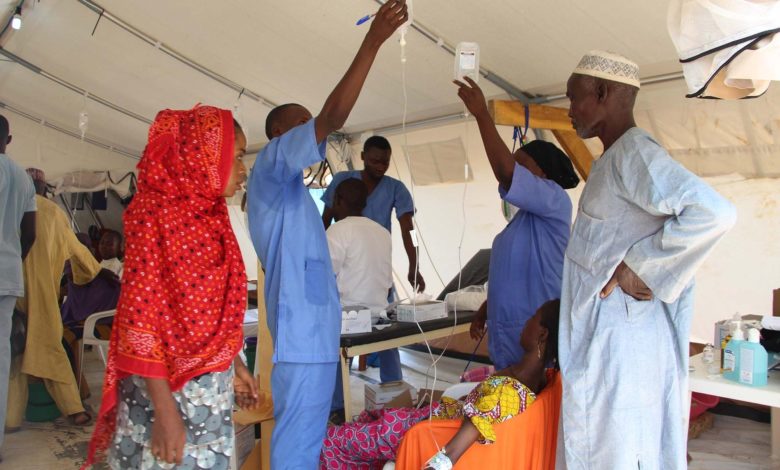
The Nigeria Centre for Disease Control (NCDC) has announced 81,413 suspected cases of cholera and 2,791 deaths, representing a Case Fatality Rate (CFR) of 3.4 per cent recorded in 28 states and the FCT in the last nine months.
The agency disclosed this in its Cholera Situation weekly epidemiological report released on Sept. 19, 2021. According to NCDC, the cumulative report also showed there was a 38 per cent decrease in the number of new suspected cases when compared to the previous week.
Startling statistics
In the report, 15 states also recorded 1,825 suspected cases of cholera, including 55 deaths, between Sept. 13 and 19. A total of 15 states reported 1,185 suspected cases including Zamfara with 524 cases, Bauchi (347), Yobe (302), Katsina (282), Borno (139), Adamawa (76), Kano (46), Jigawa (22), Kebbi (22), Gombe (22), Sokoto (13), Kaduna (12), Abia (12), Kwara (5), and Taraba (1).
Out of the suspected cases, 36 Cholera Rapid Diagnostic Tests were conducted in Adamawa (18), Kaduna (11), Zamfara (2), Yobe (2), Abia (2), and Kwara (1). Out of the test, 21 (58%) cases were confirmed positive.
A total of 10 culture tests were conducted in Katsina (6), Adamawa (3), and Kaduna (1). And a total of 18 (38%) were positive from the RDT.
Of the 55 deaths reported, Zamfara accounted for 19, Adamawa (7), Yobe (7), Jigawa (6), Katsina (5), Borno (5), Kebbi (2), Bauchi (2), and Kwara (2).
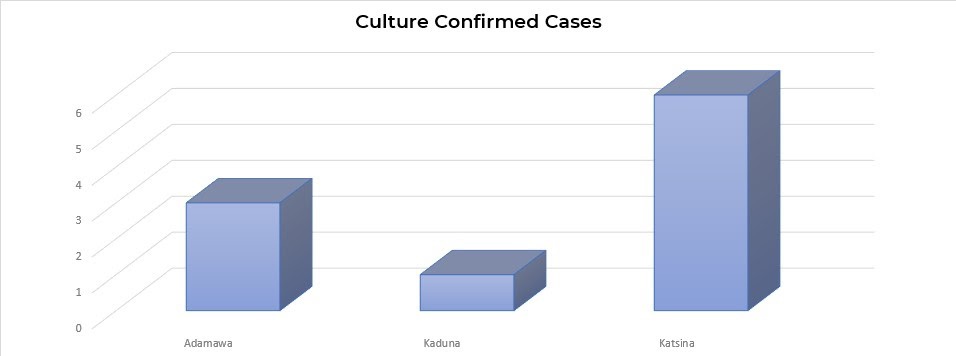
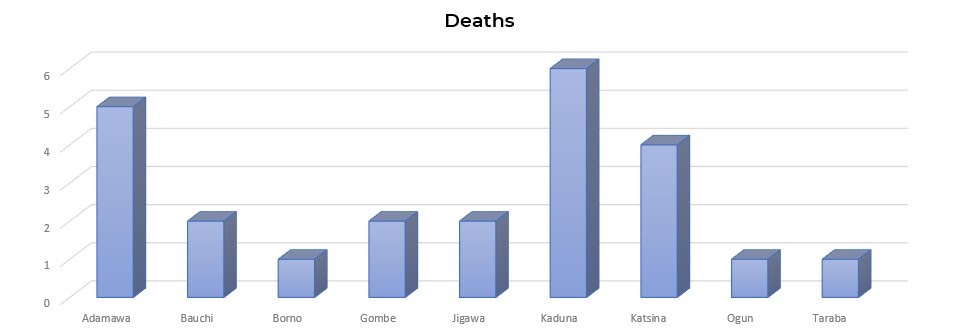
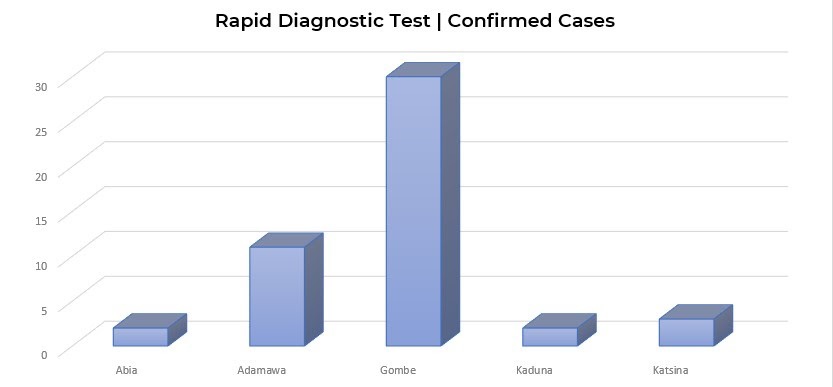
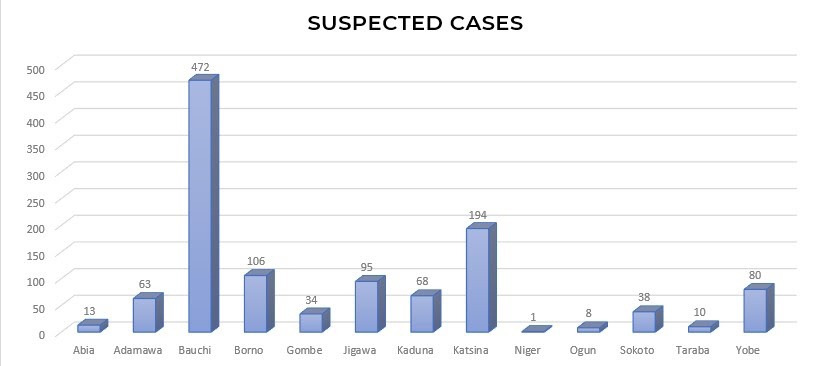
The NCDC said children between five and 14 are the most affected age group in this year’s cholera outbreak. “Of all suspected cases, 50 per cent were males and 50 per cent, females.”
HumAngle reported how Nigeria witnessed a 47 per cent increase in cases of cholera as of July 22 amidst the COVID-19 pandemic.
What could be responsible?
Speaking with HumAngle, Ebuta Agbor, a public health expert and Vice President of Medical Initiative for Africa, said open defecation is one of the major sources of cholera, with water and food as the primary sources for contamination.
“People are sourcing for water in places that are not safe and because of the level of illiteracy, people stool anywhere without access to water thereby contaminating food, and people through handshakes,” Agbor said.
According to Agbor, “personal hygiene in the country has been poor, as ignorance, poverty, and illiteracy won’t let the population of Nigerians assimilate certain health education and information.”
“We have stopped having days like environmental sanitation where everyone is on shut down and people are expected to clean their environment. These were the days both the educated and the uneducated understood that environmental hygiene is important,” he said.
He explained that housing plays a vital role in faeces disposal and access to clean water, “ but in Nigeria, as the case may be, people build houses with poor sewage disposal.”
“A lot of people live in houses that are poorly constructed and so, there are deficient proper faeces disposal facilities and clean water resources which are all important components of hygiene.”
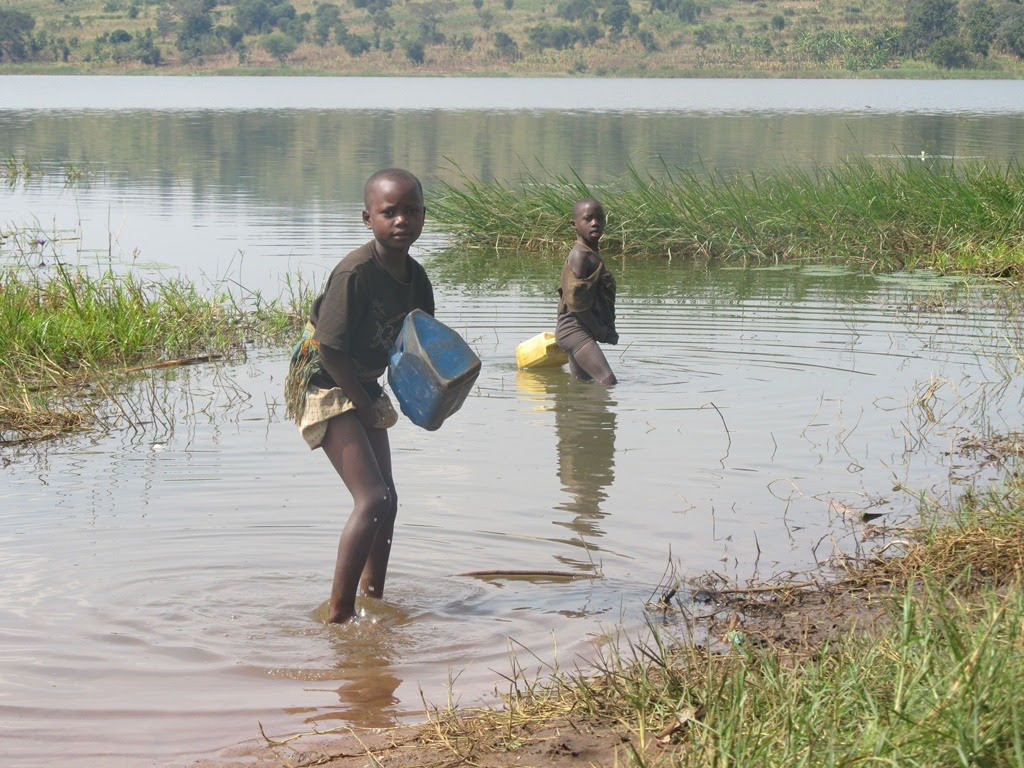
“For now, I will say cholera should be treated aggressively and one of the needs is to ramp up awareness of cholera, how it is transmitted, letting people know how fast it can kill and also, retraining health workers to identify people who are at risk of the disease,” Agbor said.
Support Our Journalism
There are millions of ordinary people affected by conflict in Africa whose stories are missing in the mainstream media. HumAngle is determined to tell those challenging and under-reported stories, hoping that the people impacted by these conflicts will find the safety and security they deserve.
To ensure that we continue to provide public service coverage, we have a small favour to ask you. We want you to be part of our journalistic endeavour by contributing a token to us.
Your donation will further promote a robust, free, and independent media.
Donate HereStay Closer To The Stories That Matter




